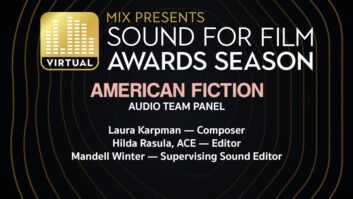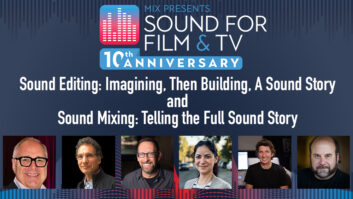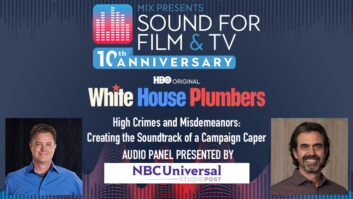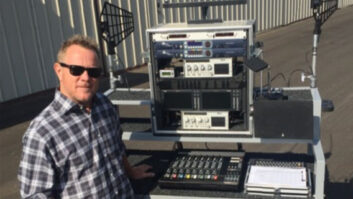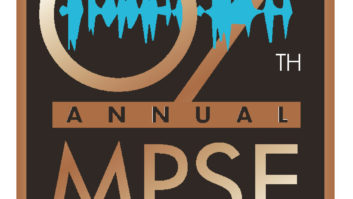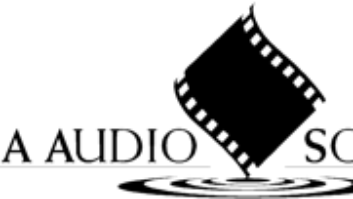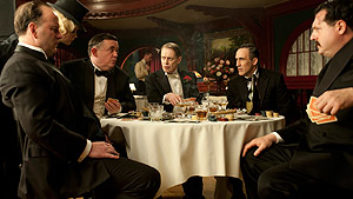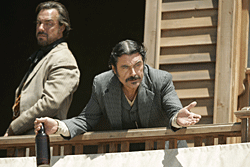
The first thing that comes to mind for fans of HBO’s critically acclaimed series Deadwood is probably not the score. More likely, it’s the nasty Al Swearengen cussin’ out his whores (or, for that matter, any other character on the show). Or Calamity Jane stumbling down the street in search of Wild Bill Hickok. The music is there — it just usually takes some looking-for.
photo by: Prashant Gupta
The series, which has a rapidly growing loyal fan base, depicts the harsh Western life of the historic South Dakota town Deadwood in the mid-1870s, known for its gold prospecting, its raunchy saloons and as the deathplace of Hickok. Most of the series’ regular characters (Swearengen, Hickok, Calamity Jane, Seth Bullock and others) are actually known historical figures from the town, depicted with stark realism.
While the usual TV Western surrounds its characters with dramatic, heroic anthems, the music for Deadwood, in fitting with the production’s character, features subtly placed ditties of period instruments. Now in its second season, the show started out with a few different composers, including Michael Brook and David Schwartz, the latter who is the writer of the show’s evocative opening title theme. But since the middle of the first season, scoring duties have been in the hands of a pair of musicians, Reinhold Heil and Johnny Klimek, who are more known for their work in the German techno world. “They couldn’t be less connected with the Western form,” comments the show’s creator, David Milch. “But it’s the mark of any artist that you submit yourself to the disciplines of the world, and these fellows work that way.”
Heil and Klimek met in the early 1980s when Klimek’s older brother, Alf, came to Germany from his native Australia to join Heil’s band, the Spliff Radio Show. The pair later formed Babyloon, whose work eventually caught the attention of filmmaker Tom Tykwer, who asked them to compose music for his 1997 film, Winter Sleepers. Following a move to California, Heil and Klimek created music for Tykwer’s next movie, Run Lola Run. “That helped us establish a foothold in the industry,” Heil says. The team also scored One Hour Photo, as well as the theme and a half-dozen episodes of the popular Without a Trace, their first television series.
It was a great surprise, however, when their agent suggested them to Deadwood‘s creators. “When they offered it to us, we thought, ‘Can we do a Western?’” recalls Klimek. “We thought, ‘Okay, we’re known as the techno guys who use sequencers,’” adds Heil. “But surely our horizon is far greater than that. So we thought it would be great to show a little bit of our versatility.”
The producers sent them the series’ second episode and asked them to create cues. “There was hardly any music in it,” Heil recalls. “So we thought, ‘Let’s use our computers, but let’s not use click tracks or sequence in a mechanical way.’ We’ll just perform and improvise and use collage techniques to cut and paste effects that we have, and create atmospheric stuff that feels organic, yet weird — something that’s not what you would expect from a Western series.” The two created a layout and sent it to the producers, who then met with the composers and decided it was a match.
Heil and Klimek’s approach is unique, both in instrumentation and in concept. To begin with, the show features very little scoring to accompany the onscreen images. “Often, music is used to reinforce the emotional intention of a scene,” explains Milch. “We never do that. And that rules out about 90 percent of musical cues.”
Heil notes: “A Deadwood episode that has five or more cues in it from us would be called a ‘music-heavy’ episode. Normally with TV shows these days, you get wall-to-wall music. The viewer is not left to his own devices, emotionally. They always get a little help with what to feel. And this is not what they want here.”
Though normally composers meet with series executives and directors for a spotting session to identify candidate scenes for music cues, during Deadwood‘s hectic first season, there simply wasn’t time. “They would send us a cut of the show and we’d watch it and take notes and make suggestions, or they’d send it with a few notes or a temp track,” says Klimek. “Sometimes they might just ask us, ‘Can you find some places?’ or, ‘What would you do?’ So we’d make our own suggestions. Often, we gave them more than what was needed, and they would just use what they felt was appropriate.”
“We would score to picture,” says Heil, “but then David might take the cue and move it by 15 seconds. We’d be unsure about it until we’d see the finished product, and it would actually play nicely, which was great.”
The basic method of recording, explains Klimek, is to record any number of interesting instruments to create what he calls the “Deadwood library.” “We take a lot of organic elements from that period and experiment using acoustic, folk-type elements, guitars, harmonicas, treat them in weird ways and build libraries. You end up with something strange and odd, which feels a bit modern, but still has the feeling of an old instrument.”
For their first episode (season 1, episode 6), the pair created an Indian Funeral cue using hoop drums and odd guitars. “I recorded with a guy called Jesse Voccia in Santa Monica [Calif.], who has a collection of 20 odd, folky instruments. Some of them are really old and sound like crap. But that was perfect for Deadwood.” Adds Heil, “I recently got a hammered dulcimer, which can make some wonderful sounds. Basically, anything goes, whether it’s playing the inside of a piano with mallets or just scraping its strings with something.”
The composers work with a team of three collaborators — Bruce Winter, Shawn Thomas Odyssey and Gabriel Mounsey — at Heil’s studio in Santa Barbara, Calif. “The five of us play everything, record the instruments, chop them up, layer them and mix. It’s a team effort, where anybody’s role can change from one moment to the next,” Heil explains.
The instruments are recorded on Logic Audio (Versions 6 and 7) on Mac G4s and G5s. “You don’t really need to push the technical boundaries for Deadwood because everything is fairly minimal,” Heil says. “I have two [Neumann] M50s, which I use a lot on Deadwood. There’s also one from the original East German branch of Neumann — a small bottle microphone with a small vacuum tube in it, which uses an M55 capsule — as well as Schoeps Colette microphones, which are a little more modern.”
Once recorded, the instruments are looped using Sound Quest’s Infinity. “From that, we’ll build a whole library of hundreds of samples,” explains Klimek. “Then for each cue, we’ll create a ‘carpet’: a base sound, an atmosphere. Sometimes, it’s just an acoustic guitar or whatever. But it’s always got to have something a little bit twisted, because that is the show.”
For the second season, the producers finally instituted conventional spotting sessions, the resultant first and second episodes featuring a good deal more music than the previous season. “It’s great to have the producers and the director physically sitting there with us discussing the scenes,” says Klimek. “It just enhances it so much.” The duo also did a set visit, which helped get them in the mood. “We had a look at the town, had lunch with the gunslingers and whores, and got a feel for it,” says Heil.
The music is delivered in stems to music editor Micha Liberman, who won an Emmy for his work on season 1. “We usually deliver 24-bit stems, sometimes in quad,” says Heil. “If it’s very atmospheric, we give them quad, but it’s mostly stereo stems, usually four or five of them.”
Besides Schwartz’s opening title theme, the only music the scoring team does not provide is what’s heard over the closing credits, which is selected by Jane Wallace. “They’re these very, very obscure period songs that are really not known, and they’re really just gems,” says Heil. A collection of the music, along with a few pieces of scoring, was released in February on the soundtrack CD, Deadwood: Music From the HBO Original Series, on the Lost Highway label.
Even though two years ago Heil and Klimek likely wouldn’t have pictured themselves scoring a Western series, they’ve fallen into the role nicely. “I find myself really excited every time a new episode arrives, which is really weird for a TV show,” notes Klimek. “It has to do with the genius of David Milch and the beautiful way he handles creating this thing,” adds Heil.
Matt Hurwitz is a freelance writer based in Los Angeles.
